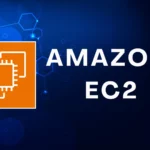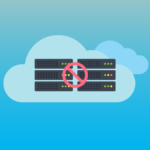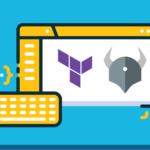
Blockchain technology, once a buzzword tightly bound to cryptocurrencies like Bitcoin, has matured into a transformative force with real-world applications across industries. However, the complexity of setting up blockchain infrastructure has often been a roadblock for enterprises. Enter Blockchain as a Service (BaaS) — a game-changing cloud-based model that simplifies the deployment and management of blockchain networks. Much like SaaS, PaaS, and IaaS, BaaS allows organizations to leverage blockchain’s potential without the need to develop in-house infrastructure or deep technical expertise.
What is Blockchain as a Service (BaaS)?
Blockchain as a Service (BaaS) is a third-party cloud-based service that enables users to build, host, and operate their own blockchain applications and smart contracts. This model provides all the backend tools and support necessary to build and maintain a blockchain network.
Just as cloud service providers manage your server infrastructure, BaaS providers manage the technical complexities of blockchain operations, such as:
- Infrastructure provisioning
- Node management
- Network configuration
- Security and compliance
- Monitoring and support
Some leading BaaS providers include Microsoft Azure, IBM Blockchain Platform, Amazon Managed Blockchain, and Oracle Blockchain Cloud Service.
Why BaaS is Gaining Momentum
BaaS is rapidly becoming the go-to solution for enterprises aiming to integrate blockchain without diving into its technical intricacies. Here’s why it matters:
🚀 1. Lower Barrier to Entry
BaaS eliminates the high cost and complexity of setting up blockchain networks. Businesses can test and deploy solutions faster without hiring blockchain developers or maintaining infrastructure.
🛡️ 2. Enhanced Security & Compliance
With BaaS, companies benefit from built-in security frameworks and compliance standards managed by experienced providers, which ensures better protection of data and digital assets.
🧩 3. Seamless Integration
BaaS platforms offer integration with existing enterprise systems (e.g., ERP, CRM, supply chain solutions), allowing blockchain to work alongside traditional IT stacks.
⏱️ 4. Faster Time to Market
By abstracting the backend complexities, BaaS accelerates the development and deployment of blockchain solutions, helping companies bring innovations to market quicker.
⚙️ 5. Scalability and Flexibility
BaaS solutions can scale based on business needs, whether you’re running a small proof of concept or a full-scale blockchain-based operation.
How BaaS Works
At its core, BaaS functions similarly to other cloud services:
- Cloud Deployment
The BaaS provider hosts the blockchain infrastructure in a secure cloud environment. - API and SDK Access
Developers use APIs and SDKs provided by the platform to create decentralized apps (dApps), smart contracts, or private blockchain environments. - Monitoring and Management Tools
Dashboards and analytics tools are included for real-time monitoring of blockchain operations, performance, and security. - Modular Services
BaaS often supports various blockchain protocols such as Hyperledger Fabric, Ethereum, Corda, and Quorum, allowing clients to choose what fits their use case.
Key Use Cases of BaaS
The adoption of BaaS is driving innovation across sectors:
🔗 Supply Chain Management
Blockchain ensures transparency, traceability, and accountability throughout the supply chain — from raw material sourcing to delivery.
📄 Smart Contracts
Automated agreements executed on the blockchain reduce the need for intermediaries and lower transaction costs.
🏥 Healthcare
Secure patient data sharing, prescription tracking, and drug authentication are enhanced with blockchain’s immutable records.
💳 Financial Services
From cross-border payments to fraud detection, BaaS helps financial institutions integrate blockchain for secure, transparent operations.
🎨 Digital Identity & NFTs
BaaS can support decentralized identity systems and NFT marketplaces by managing ownership and authenticity records on-chain.
Challenges and Considerations
Despite its benefits, BaaS comes with its own set of challenges:
- Vendor Lock-in: Dependence on a specific BaaS provider may lead to compatibility and migration issues in the future.
- Data Privacy: While blockchain ensures data integrity, privacy concerns must be managed, especially in public or hybrid networks.
- Limited Customization: BaaS platforms might not allow full control or customization depending on the provider’s service model.
Organizations should evaluate these risks alongside the advantages before choosing a provider.
The Road Ahead: BaaS as a Catalyst
As enterprises continue exploring blockchain solutions, BaaS will play a pivotal role in democratizing blockchain technology. It empowers businesses to focus on their core use cases rather than managing infrastructure. With ongoing advancements in cloud computing, AI, and IoT, we can expect tighter integration and even more robust blockchain-based ecosystems powered by BaaS.
Final Thoughts
Blockchain as a Service is not just a tech trend — it’s an enabler. It bridges the gap between potential and implementation, allowing enterprises of all sizes to harness the power of distributed ledger technology with ease. By offering scalability, reduced costs, and rapid deployment, BaaS is accelerating the global adoption of blockchain across industries.
Whether you’re a startup looking to build a decentralized application or an enterprise aiming to enhance transparency and trust, BaaS offers the foundation to innovate confidently — without the overhead of infrastructure management.
Follow us for more Updates












